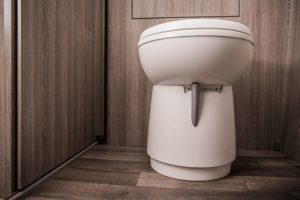 Top 3 Traditional RV Toilet Alternatives
Top 3 Traditional RV Toilet Alternatives
For many people, RVing is a way of life. For others, it is an occasional pastime. Either way, one thing is certain: when it comes to RVs, the traditional toilet can be a source of frustration, hassle, and expense. Fortunately, there are alternatives to the traditional RV toilet that are easy to use, cost-effective, and environmentally friendly. In this blog post, we’ll take a closer look at the top three traditional RV toilet alternatives.
1. Composting Toilets
Composting toilets are a popular alternative to the traditional RV toilet for a number of reasons. First, they are eco-friendly. They use no water, and they turn waste into compost that can be used as fertilizer. Second, they are easy to use. Unlike traditional RV toilets, composting toilets require no black tank or chemicals. Third, they are surprisingly affordable. In fact, they can pay for themselves in just a few years.
There are two types of composting toilets: self-contained and central. Self-contained composting toilets are perfect for RVs because they require no external plumbing or ventilation. They are simple to install and require almost no maintenance. Central composting toilets, on the other hand, are designed for larger installations, such as homes or cabins. They require both ventilation and external plumbing.
One of the best things about composting toilets is that they are completely odorless when properly maintained. The composting process neutralizes any bad smells, and most models come with a built-in fan to ensure proper ventilation.
2. Cassette Toilets
Cassette toilets are another popular alternative to the traditional RV toilet. They are compact, easy to install, and require no external power source. In many ways, cassette toilets are similar to portable toilets. However, unlike portable toilets, cassette toilets are designed to be installed permanently in an RV.
Cassette toilets use a removable, portable tank that is located beneath the toilet. When the tank is full, it can be removed and emptied at any RV dumping station. To use a cassette toilet, simply sit on the toilet as you would with a traditional toilet. When you’re done, press the flush button. The waste is collected in the cassette and can be emptied later.
One of the main advantages of cassette toilets is their ease of use. They require no external power or plumbing, and they can be emptied at any RV dump station. Additionally, they are relatively inexpensive compared to composting toilets or traditional RV toilets.
3. Incinerating Toilets
If you’re looking for an alternative to a traditional RV toilet that is both eco-friendly and hassle-free, incinerating toilets may be the right choice for you. Incinerating toilets use a small electric heater to incinerate waste. As a result, they require no external plumbing, water, or chemicals. The waste is reduced to ash, which can be easily disposed of.
Incinerating toilets are compact and easy to install. They are perfect for RVs, boats, and other small spaces. Because they require no external plumbing, they can be installed almost anywhere. Additionally, they are completely odorless, making them a popular choice for RVers who are sensitive to bad smells.
Another advantage of incinerating toilets is their low maintenance requirements. Because they require no external plumbing or chemicals, they are relatively easy to maintain. Additionally, they are eco-friendly, producing no harmful chemicals or pollutants.
Conclusion
When it comes to RV toilets, the traditional options can be frustrating, messy, and expensive. However, with the rise of alternative options such as composting, cassette, and incinerating toilets, there is no reason to put up with a traditional toilet any longer. Each of these alternatives offers unique advantages, from eco-friendliness to affordability to ease of use. By choosing one of these alternatives, you can simplify your life and make your RV adventures more enjoyable.
